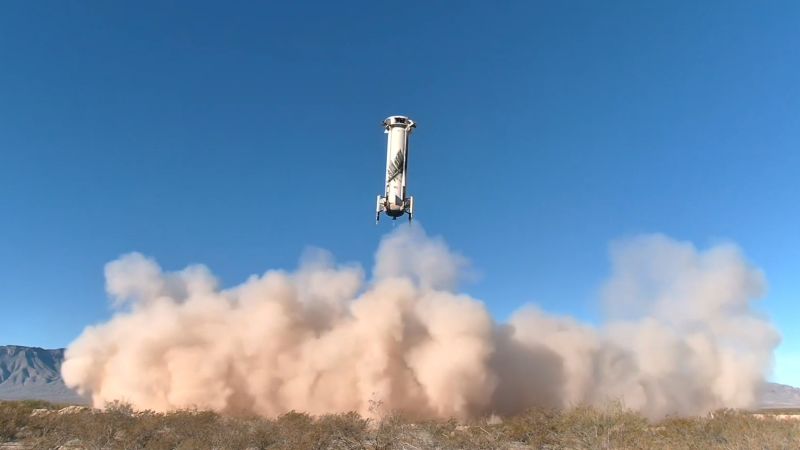Blue Origin, the aerospace manufacturer and spaceflight services company founded by Jeff Bezos in 2000, is set to embark on a groundbreaking mission this spring. This upcoming crewed flight is particularly noteworthy as it will carry an all-female crew aboard its New Shepard rocket, marking a significant milestone in space exploration. The mission aims to break barriers and highlight women’s contributions to science and space travel, a field that has historically been male-dominated.
Among the distinguished six-person crew are several trailblazers: journalist Gayle King, celebrated singer Katy Perry, and bioastronautics research scientist Amanda Nguyen. These remarkable women exemplify the diverse talents and backgrounds that are represented in this historic mission. Joining them will be Aisha Bowe, a former NASA rocket scientist and CEO of a company that promotes STEM education, and Kerianne Flynn, a film producer dedicated to nonprofit work with notable institutions like The Allen-Stevenson School, The High Line, and Hudson River Park. Their inclusion signifies the vast array of expertise that women bring to space exploration and the importance of representation in this field.
The mission will be brought together under the guidance of Lauren Sánchez, a pilot, journalist, and vice chair of the Bezos Earth Fund. Sánchez, who is engaged to Blue Origin’s founder, Jeff Bezos, passionately supports the mission’s vision to challenge the crew’s perspectives of Earth. “She is honored to lead a team of explorers on a mission that will empower them to share their own stories and create a lasting impact that will inspire generations to come,” states Blue Origin. This reflects a hopeful vision for the impact such missions could have on inspiring future explorers, especially young girls aspiring to enter STEM fields.
A breakthrough moment will be achieved with the inclusion of Amanda Nguyen, who was nominated for a Nobel Peace Prize in 2019 for her exceptional advocacy work for sexual violence survivors. Nguyen’s participation marks a historically significant achievement as she will become the first Vietnamese and Southeast Asian woman to travel to space. Her story transcends personal recognition, symbolizing the aspirations and dreams of countless women around the globe.
The mission, designated NS-31, represents New Shepard’s 11th journey transporting humans past the internationally recognized Kármán line, a boundary set at around 62 miles (or 100 kilometers) above Earth. This altitude is widely accepted as the threshold of outer space, although there are still ongoing discussions regarding its exact delineation. As of now, Blue Origin has not revealed a specific launch date, but the anticipation around this mission is palpable given its unprecedented focus on women’s achievements in space.
It’s worth noting that this mission will mark the first all-female crewed flight since Soviet cosmonaut Valentina Tereshkova’s solo journey in 1963, which lasted nearly three days. Despite the advances seen in the decades since, the space industry has historically fallen short in gender representation. NASA has selected a total of 61 women to become astronauts since its inception, and the first all-female spacewalk occurred in October 2019 with astronauts Christina Koch and Jessica Meir.
The number of women venturing into space has notably increased alongside the rising popularity of space tourism. A significant milestone was recently reached when Emily Calandrelli, an engineer from the Massachusetts Institute of Technology, affectionately known as the “Space Gal,” became the 100th woman to travel to space aboard Blue Origin’s NS-28 mission in November. This surge in female representation in space exploration is a heartening trend that inspires future generations to dream big, encouraging young women to break through barriers in pursuit of their ambitions in the STEM fields.
In conclusion, the upcoming all-female crewed flight by Blue Origin is much more than just a mission; it is a celebration of women’s achievements in a domain that continues to evolve. Such efforts not only challenge gender norms within the space industry but also serve to inspire countless individuals to look upward, dream boldly, and reach for the stars.



